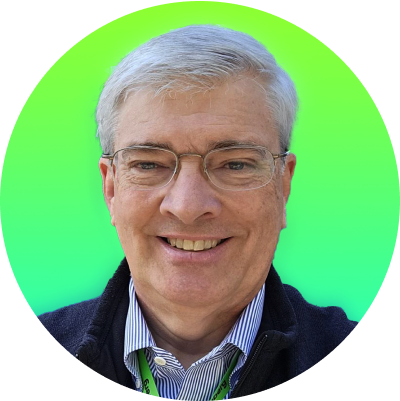Ali Rohafza and Detelina Vassileva

Six Questions for Ali Rohafza and Detelina Vassileva – Founder/CEO and COO of Altered Carbon of England
1. What problem is Altered Carbon solving and how?
We were competing in the Reducing Food Loss category at the World Food Forum. Where we aim for impact is in food storage. A massive amount, something like 1 trillion pounds of food loss happens annually. 60% of that is front facing, that is, on the store shelf or at home. 40% is on the back end from field onward – half of that is in storage – shipping containers and intermediate warehouses, and that’s our target. We think we can help people manage their stocks better if they know when their food is ripening, when its about to go off (expire) and expedite that on a timely basis, whereas now they might expedite a fresher pallet first – because of not knowing. So, we detect biomarkers with our “digital nose” which are basically organic gases that are given off by fruit and vegetables, animals, humans. All those “smells” are indicators of various things and we learn correlations between cause and effect.
2. What is your background that led you to founding AIDONIC?
ALI: Well, it’s funny. I was actually an art student and came to the University of Bristol to study architecture when I stepped in to the wrong lecture and heard the brilliant Matt Studley – who is now an advisor to Altered Carbon – talk about robotics in the most passionate way and I thought – that’s what I want to do. And then in the course of labs and internships I met the other two guys who became co-founders. And even then, we were trying to build batteries with graphene and the batteries did not work out, but the first part of it was a graphene receptor which worked really well and we saw how it could be a great as a “digital nose”.
DETELINA: I was always into science, my Bachelor’s Degree is in psychology which is the science part of psych. I then worked with information technologies for many years. Last year, I left my corporate job and wanted to do something that was more impactful and use my experience in technology and in business to do something really, really cool. When I heard about Altered Carbon and “digital nose” I absolutely wanted in because I’ve always had a very strong sense of smell, especially when I was pregnant. Because you know when women are pregnant, it heightens their sense of smell, from evolution, because you have to carefully assess your environment to protect the fetus and then the baby.
3. What is unique about your technology and what is its validation status?
People have tried to do “digital nose” in the past, but usually with single gas sensors where the output signal is scrubbed in some way so you don’t get the raw data that you need to actually be able to build good AI models. We are using a printable film of graphene, a nanomaterial form of carbon, which turns out to be an acutely sensitive sensor. These graphene inks become really easy to manufacture, deploy and adjust for new applications. Our offering has two parts. The sensor generates a bunch of signals, and then we have what we call “ScentStudio” which is a cloud based AI/ML platform where we are tagging what the different scent signals represent and over time we derive a really robust model. Then when deployed in the field, we can reference the model and say, that scent means the strawberries are starting, say, a five-day decline to spoilage. We have come along way down the model building road. Initially it’s slow and expensive, but like most AI models, as you get more data it gets very much easier to grow better and faster and simpler.
4. What are your Go-To-Market ideas and traction received so far?
Our customers are going to be large producers or shippers and we’re working with an array of each of those. Right now we’re in the middle of model-building trials with the biggest berries producer in the UK, another company that ships large amounts of food from different countries, with poultry producers for various detections related to animal welfare, and even outside of food, we are running trials with a device deployed in hospitals to detect airborne bacterial infections.
5. What is next?
We are planning a large expansion in 2025 based off of another round of investment. Can’t speak much to that, but as we said earlier, the initial start is very slow, meticulous and hand-crafted, so the next period will have a heavy focus on automation so we can work with a large variety of customers in the time it takes for us to work with one at the moment we want to multiply that, manage that and be able to work with hundreds and hundreds.
Also, expanding the healthcare vertical. We sit in this triangle where if you imagine food waste and animal welfare and human health, all of it relates to disease and infection chemistries at which our sensor is quite good. And the bigger our models get, the faster we can grow.
6. Tell us about your experience with XTC
The UN WFF Startup Innovation Awards powered by XTC has been the most impactful event we have been a part of. Thanks to XTC, we have made connections to the public sector, private sector, and investors and received more exposure than with any other event. We felt supported and encouraged from the moment of applying until the very end and we are extremely grateful for the impact this has had on our business.
